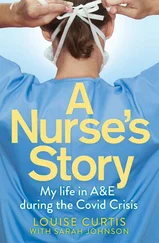As a matter of fact I read somewhere that as many as two thousand stricken bodies were pulled out of ditches and piled onto carts then wheeled down the hill to the pit at the churchyard below. But I think to myself, not all of them were pulled out of the ditch. By the time they collapsed and dropped down dead into the ditch some of them would have had no form really, no flesh left at all. Nothing to keep the bones raised, nothing to keep the skin bound, and so the bones would slot down deep into the gaps and the skin would slacken and mingle with rainwater and sediment and the eyes would soon well up and come loose and sprout lichen and the fingernails would untether and stray and the hair would ooze upwards in rippling gelatinous ribbons and the teeth, already blackened and porous, would suck up against the sumptuous moss and babble and seethe. There would hardly be any trace of them, nothing to take hold of. Imagine that, Salton — already so wasted away there was nothing remaining to pull out and carry off.
Then I came across a company in England who supply spares, parts and accessories for all kitchen appliances, including the cooker, dishwasher, extractor hood, fridge and freezer. However, despite an impressively extensive catalogue of replacement cooker knobs my particular model is nowhere to be found in the existing options and elicits zero response when I enter it into the site’s search facility and so the only remaining course of action is to fill out an enquiry form which I do because as far as I can see this is the end of the line and I may as well get to the end of the line and accept my inevitable defeat fully. Sure enough, approximately three hours later I receive an email from the company web support team informing me that unfortunately on this occasion they have been unable to find the item I require. They assure me that even though they haven’t been able to deliver on this occasion they will continue to attempt to source the item—‘If successful we will add it to our range and notify you at once’—I don’t expect to ever hear from them again. I always knew, in the heart of my heart, I would not have any success whatsoever with locating replacement control knobs for my obsolete mini-kitchen.
I feel quite at a loss for about ten minutes and it’s a sensation, I realise, that is not entirely dissimilar to indifference. So, naturally, I handle it rather well.
A week or so before Christmas I was standing at the kitchen worktop in my friend who lives nearby’s house, maybe we were sharing some kind of toasted snack, I don’t remember — I was wearing a hat, I remember that, and perhaps I’d intended to go somewhere that day but due to some humdrum hindrance didn’t really go anywhere. He was getting some things together but was attentive and forthcoming nonetheless. Because he works from home and his work involves materials and equipment and his home is quite small there is always a lot of stuff on the worktops and table and even across the sofa and often while we talk I’ll fiddle about with some item or other and may even pretend to steal it in a very bungled and obvious fashion. Oh I remember now. A few weeks before, he’d found a make-up bag in the road and he wondered if I wanted anything from it. That’s not the reason I called on him though, as a matter of fact I’d seen him several times since he’d found the make-up bag and I’d almost clean forgotten about it but then, as I was coming out of his bathroom, I thought of it and asked him if he still had it. When I opened the make-up bag there was that deep-seated scent of sweet decay, and the cosmetics inside were very cakey and dark. What’s that, he said. Concealer, I said. And this, he said. I think that’s a concealer too, I said. Do you think it belonged to someone older, he said. No I don’t, I said, the opposite. How come, he said. Check out this lipgloss, I said. There was nothing in the make-up bag I wanted — bar a pair of tweezers. That’s all you want, he said. Yeah, I said. Then we put everything back into it and he put the whole lot in the bin and then I noticed the pair of pliers on the side. Where did you get those, I said. You can have them if you want, he said. Can I, I said. You probably need it for your cooker, he said. Yeah I do, I said, big time. And I was about to reach for them when he said they needed sterilising first. Put them in boiling water for a few minutes, he said. What for, I said. They’ve been down the toilet, he said. And he wrapped them up in a clear plastic bag and I put them in my pocket, along with the expensive looking tweezers. Give me a shout when you get back, I said. Might do, he said. Have a good one, I said.
By the way it turns out I depicted a number of things quite inaccurately when I was discussing that book about the woman who is the last person on earth — for example, the dog, Lynx, belonged to Hugo and Luise, the couple whose hunting lodge the woman was staying in when the catastrophe came about. The dog is actually a Bavarian bloodhound, which is more or less what I had in mind anyway, but he didn’t just turn up, like I said, he and the woman already knew each other. There are other mistakes too, elisions mostly, but I’m not going to amend any more of them because in any case it’s the impression that certain things made on me that I wanted to get across, not the occurrences themselves. Maybe if I’d had the book to hand at the time I would have checked the accuracy of those details I relayed, but perhaps not, at any rate it wasn’t possible to check anything because I’d lent my copy of the book to a friend. My friend, who is a Swedish speaking Finn, had been feeling unwell for some time and I thought this particular book would be the perfect book for a poorly person to read and when eventually I met her to collect it she put her whole hand on it very neatly and said it was an amazing book. We were both sitting at a small round table in the afternoon and we each had a glass of red wine. She had recently returned from Stockholm where she had been celebrating her mother’s ninetieth birthday. She was feeling much better and talked excitedly about the trip — the hotel they stayed in, she told me, served breakfast until two o’clock in the afternoon! That’s very civilised, I said. Yes, she said, and there were tables and tables of the most delicious things. Melons, she said. There’s something from Stockholm inside the book for you, she said. Oh, I said, wow, and I carefully opened the book and inside was a tiny knife with a bone handle. That’s beautiful, I said. I had to post it, she said. Oh yeah, I said, rotating the knife slowly. I like little knives, she said. Me too, I said.
The road home doesn’t have any cat’s eyes or stripes painted on it anywhere. There is no pavement and the cars go by too close and very fast. On either side of the road is the ditch, the hawthorn trees and any amount of household waste; including, actually, dumped electrical items. And as I walked from my friend nearby’s house along that road towards home a week or so before Christmas I stood still at the usual place and experienced a sudden upsurge of many murky impressions and sensations that have lurched and congregated in the depths of me for quite some time. If you are not from a particular place the history of that particular place will dwell inside you differently to how it dwells within those people who are from that particular place. Your connection to certain events that define the history of a particular place is not straightforward because none of your ancestors were in any way involved in or affected by these events. You have no stories to relate and compare, you have no narrative to inherit and run with, and all the names are strange ones that mean nothing to you at all. And it’s as if the history of a particular place knows all about this blankness you contain. Consequently if you are not from a particular place you will always be vulnerable for the reason that it doesn’t matter how many years you have lived there you will never have a side of the story; nothing with which you can hold the full force of the history of a particular place at bay.
Читать дальше












